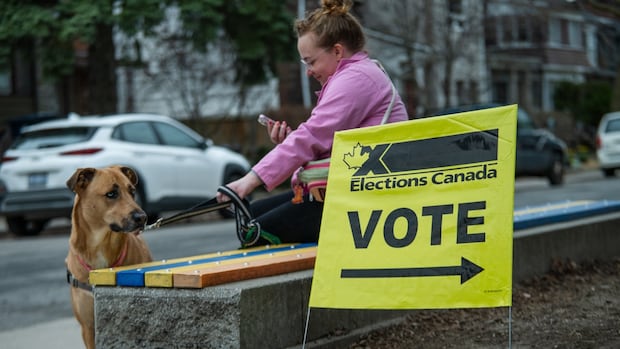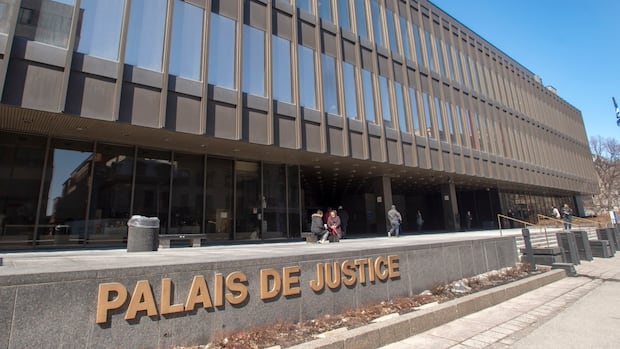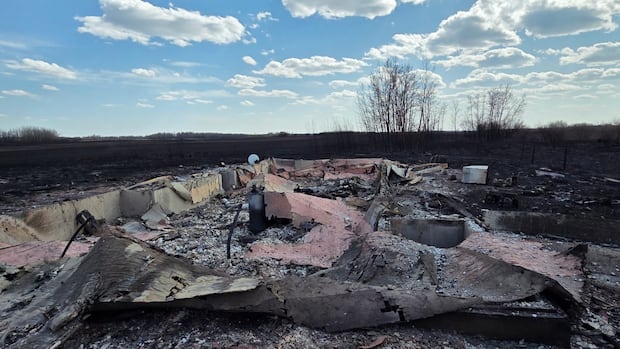Children in Quebec can have more than two parents, according to a Superior Court decision that now gives the provincial government 12 months to amend the Civil Code to legally recognize this type of family structure.
In a ruling issued on Thursday, Judge Andres C. Garin examined complaints from two separate cases.
The plaintiffs in those cases were La Coalition des familles LGBT+ — a group that seeks to have all families recognized regardless of how they're formed — as well as three families who were unable to put the names of three parents on their children's birth certificates.
The ruling examines the concept of filiation, which is the legal relationship between a child and parents that establishes rights and responsibilities, and whether the Civil Code of Quebec, as currently written, is equipped to recognize multi-parent families.
The judge determined that the Civil Code's inability to legally recognize multi-parent families violates the complainants' Canadian Charter right to equality.
"Having a maximum of two filiation links sends the message to multi-parent families and society in general that only families deemed "normal", with a maximum of two parents, represent family structures that are valid and worthy of legal recognition," the ruling reads.
"This message reinforces and perpetuates the disadvantages experienced by those who are part of a non-traditional family."
Other Canadian and Quebec charter rights violations were alleged by the complainants:
The Canadian Charter right to life, liberty and security of the person. The Quebec charter right to life, personal security, inviolability and freedom. The Quebec charter right to respect for one's private life.The judge, however, disagreed with those claims.
At the time of publication, it was unclear whether Quebec planned to appeal the ruling. A spokesperson for Quebec Justice Minister Simon Jolin-Barrette said the government is reviewing the judge's decision.
 Quebec's justice minister, Simon Jolin-Barrette, will analyze the ruling before deciding whether the provincial government wants to abide by it or file an appeal. (Sylvain Roy Roussel/CBC)
Quebec's justice minister, Simon Jolin-Barrette, will analyze the ruling before deciding whether the provincial government wants to abide by it or file an appeal. (Sylvain Roy Roussel/CBC)"Everybody's so relieved and so happy to be finally recognized from a legal standpoint," said Marc-André Landry, a lawyer at Lavery who represented one of the families.
He argued it is in the best interest of children for provincial law to formally recognize family structures that match their realities.
This ruling, Landry explained, will provide "all the protections and all the benefits of the law" to children in multi-parent families, including rights related to succession, insurance and custody.
He predicts that the impact of this decision will not only be legal, but also social.
"The law accelerates the social acceptance of situations that might not have been so orthodox before," said Landry, pointing to the example of gay and lesbian parents, who gained more acceptance in society after their status was legally recognized.
But Sylvie Schirm, a lawyer in family law, anticipates some obstacles that could arise from the ruling, especially in the event of a breakup.
"If there are two [parents] against one, is there going to be a vote?" asked Schirm, adding that the most damaging thing for a child isn't having to live in different places, but parental conflict.
Isabel Côté, professor in the social work department at the Université du Québec en Outaouais, argued that the law currently has everything to make decisions in a context of separation, where conflicts within a family could be significant.
"The question of the child's best interests is already there at the heart of the decisions that judges currently make in acrimonious separation contexts. So it would be no different in a multi-parent context," said Côté.
Sarah Woods, another lawyer who represented some of the plaintiffs, including La Coalition des familles LGBT+, believes the ruling will set a precedent and influence other provinces that do not yet have similar legislation.
"It can serve as a precedent in the interpretation [of the Canadian law] in another province," said Woods.
If the ruling stands and changes are eventually made to the Civil Code, Quebec would become the fifth province or territory in Canada to legally recognize families with at least three parents.
Under B.C. law, a child conceived through assisted reproduction can have up to three parents as long as there is a written agreement, and the law specifies which individuals are allowed to be part of that agreement.
In Ontario, up to four people can be recognized as the parents of a child, regardless of how the child is conceived. The same goes for Saskatchewan.
In Yukon, declarations of birth need to include the names of the child, the mother, the father and "another parent" if that applies.
The territory's Vital Statistics Act defines mother as "the woman from whom a child is delivered" and father as "a person who acknowledges being the biological father of a child."
The Quebec Superior Court ruling does not specify how the government should amend the Civil Code.













